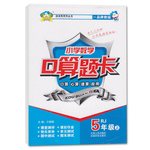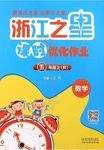题目内容
There is an old proverb, __36__ that the tongue has the power of life and death and __37__ loves it will eat its fruit.
It is true. What we say has the ability to __38__ emotions, and thoughts in others. A kind word helps people, and __39__ words hurt people —— sometimes for a very long time.
Most of the time we __40__ this concept in relation to how we treat others and that is good. __41__ here I want to talk about this concept in relation to ourselves. How does __42__ we say affect us greatly? There is a simple principle here. Only say things that will create in you__43__ emotions, thoughts, feelings, and finally, actions. Let me give you a good __44__. We should not allow the words “I can’t” in our __45__. Why? Because we CAN! The very minimum(最低限度) is “I’ll try”.
Have you ever been about to __46__ the soccer ball towards the goal and said to yourself, “I am going to fail this one?” What happens? You fail it. This actually __47__ to me. So what do I do? I pause for a(n) __48__, reset myself, and tell myself I am going to kick it straight down. What happens? About half the time I kick it straightly, and the other half, I __49__ it. But at the very least I increase my __50__ of performing better. Bad thoughts almost guarantee failure, __51__ good thoughts increase success.
Some of us aren’t even __52__ that we talk negatively to ourselves. Take __53__some time today to think about what you say to yourself. If you find yourself saying negative things, it is a time to change! Find some simple phrases that will help you __54__ the day with more success. Whatever your situation or work is, I am sure there are specific things you can say that will build you up and put you on the road __55__to success!
36.A.speaking B.saying C.talking D.telling
37.A.what B.who C.whoever D.whatever
38.A.create B.build C.invent D.discover
39.A.kind B.happy C.active D.negative
40.A.think about B.think over C.think of D.think out
41.A.So B.And C.But D.Or
42.A.that B.what C.which D.where
43.A.positive B.negative C.excellent D.wonderful
44.A.case B.example C.situation D.condition
45.A.thoughts B.ideas C.minds D.feelings
46.A.play B.beat C.hit D.kick
47.A.happens B.occurs C.strikes D.turns
48.A.hour B.minute C.day D.month
49.A.fail B.try C.manage D.win
50.A.opinions B.changes C.chances D.practices
51.A.as B.while C.because D.but
52.A.aware B.sure C.certain D.clear
53.A.sometime B.sometimes C.some times D.some time
54.A.get on B.get through C.get off D.get back
55.A.on B.above C.to D.in
It is true. What we say has the ability to __38__ emotions, and thoughts in others. A kind word helps people, and __39__ words hurt people —— sometimes for a very long time.
Most of the time we __40__ this concept in relation to how we treat others and that is good. __41__ here I want to talk about this concept in relation to ourselves. How does __42__ we say affect us greatly? There is a simple principle here. Only say things that will create in you__43__ emotions, thoughts, feelings, and finally, actions. Let me give you a good __44__. We should not allow the words “I can’t” in our __45__. Why? Because we CAN! The very minimum(最低限度) is “I’ll try”.
Have you ever been about to __46__ the soccer ball towards the goal and said to yourself, “I am going to fail this one?” What happens? You fail it. This actually __47__ to me. So what do I do? I pause for a(n) __48__, reset myself, and tell myself I am going to kick it straight down. What happens? About half the time I kick it straightly, and the other half, I __49__ it. But at the very least I increase my __50__ of performing better. Bad thoughts almost guarantee failure, __51__ good thoughts increase success.
Some of us aren’t even __52__ that we talk negatively to ourselves. Take __53__some time today to think about what you say to yourself. If you find yourself saying negative things, it is a time to change! Find some simple phrases that will help you __54__ the day with more success. Whatever your situation or work is, I am sure there are specific things you can say that will build you up and put you on the road __55__to success!
36.A.speaking B.saying C.talking D.telling
37.A.what B.who C.whoever D.whatever
38.A.create B.build C.invent D.discover
39.A.kind B.happy C.active D.negative
40.A.think about B.think over C.think of D.think out
41.A.So B.And C.But D.Or
42.A.that B.what C.which D.where
43.A.positive B.negative C.excellent D.wonderful
44.A.case B.example C.situation D.condition
45.A.thoughts B.ideas C.minds D.feelings
46.A.play B.beat C.hit D.kick
47.A.happens B.occurs C.strikes D.turns
48.A.hour B.minute C.day D.month
49.A.fail B.try C.manage D.win
50.A.opinions B.changes C.chances D.practices
51.A.as B.while C.because D.but
52.A.aware B.sure C.certain D.clear
53.A.sometime B.sometimes C.some times D.some time
54.A.get on B.get through C.get off D.get back
55.A.on B.above C.to D.in
36—40 BCADC 41—45 CBABC 46—50 DABAC 51—55 BADBC
36.B(解析:speak与talk强调说话的动作;say强调说的内容;tell告诉某人某事。)
37.C(解析:根据该空后的谓语动词,容易排除选项A、D。whoever="anyone" who,依据句意,应选C。句意为:喜欢它的人会自食其果。)
38.A(解析:依据下文的提示,该空应选create,句意是:我们说的话能够引起别人的情感和思想。)
39.D(解析:只有消极的话才会伤害别人。)
40.C(解析:think about“思考”;think over“仔细考虑”;think of“想起”;think out“想出”。)
41.C(解析:这里表示转折,句意为:但是在这里“我”要谈的是与自己有关的事。)
42.B(解析:what引导主语从句,并在主语从句中作say的宾语。)
43.A(解析:原则是只说引起积极情感、思想的事。)
44.B(解析:give you a good example“给你举个例子”。)
45.C(解析:句意是:我们不应该让“我不能”这样的话出现在我们的脑海里。)
46.D(解析:kick the ball“踢球”。)
47.A(解析:happen to sb“……发生在某人身上”;occur to sb“……出现在某人的脑海里”。)
48.B(解析:for a minute“一会儿”,句意是:我暂定了一会儿。)
49.A(解析:前句的意思是:大约一半的机率我径直地射门了,所以后一句的意思应是:另一半的机率我失败了。)
50.C(解析:句意是:但至少增加了表现好的机会。)
51.B(解析:前后分句为对比关系,所以用while。)
52.A(解析:be aware that…“意识到……”。)
53.D(解析:从题干上看,该空为take的宾语,所以sometime,sometimes排除,因为它们是副词。some times“几次”;some time“一段时间”,故依据句意,该空应选D。)
54.B(解析:get on“上车”;get through“通过,度过”;get off“下车”;get back“回来”。)
55.C(解析:the road to success“成功之路”。)
37.C(解析:根据该空后的谓语动词,容易排除选项A、D。whoever="anyone" who,依据句意,应选C。句意为:喜欢它的人会自食其果。)
38.A(解析:依据下文的提示,该空应选create,句意是:我们说的话能够引起别人的情感和思想。)
39.D(解析:只有消极的话才会伤害别人。)
40.C(解析:think about“思考”;think over“仔细考虑”;think of“想起”;think out“想出”。)
41.C(解析:这里表示转折,句意为:但是在这里“我”要谈的是与自己有关的事。)
42.B(解析:what引导主语从句,并在主语从句中作say的宾语。)
43.A(解析:原则是只说引起积极情感、思想的事。)
44.B(解析:give you a good example“给你举个例子”。)
45.C(解析:句意是:我们不应该让“我不能”这样的话出现在我们的脑海里。)
46.D(解析:kick the ball“踢球”。)
47.A(解析:happen to sb“……发生在某人身上”;occur to sb“……出现在某人的脑海里”。)
48.B(解析:for a minute“一会儿”,句意是:我暂定了一会儿。)
49.A(解析:前句的意思是:大约一半的机率我径直地射门了,所以后一句的意思应是:另一半的机率我失败了。)
50.C(解析:句意是:但至少增加了表现好的机会。)
51.B(解析:前后分句为对比关系,所以用while。)
52.A(解析:be aware that…“意识到……”。)
53.D(解析:从题干上看,该空为take的宾语,所以sometime,sometimes排除,因为它们是副词。some times“几次”;some time“一段时间”,故依据句意,该空应选D。)
54.B(解析:get on“上车”;get through“通过,度过”;get off“下车”;get back“回来”。)
55.C(解析:the road to success“成功之路”。)

练习册系列答案
 小学教材全测系列答案
小学教材全测系列答案 小学数学口算题卡脱口而出系列答案
小学数学口算题卡脱口而出系列答案 优秀生应用题卡口算天天练系列答案
优秀生应用题卡口算天天练系列答案 浙江之星课时优化作业系列答案
浙江之星课时优化作业系列答案
相关题目